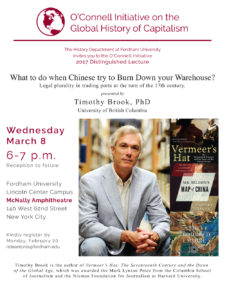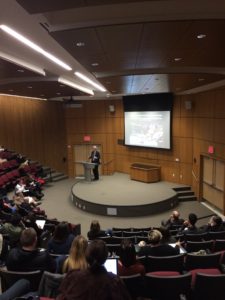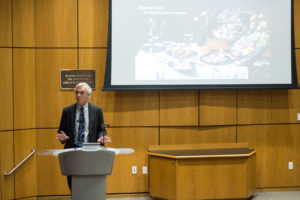Steven Stoll, Professor of History here at Fordham University specializing in environmental history and the history of capitalism and agrarian societies, recently published “No Man’s Land” in the Orion Magazine.

Steven Stoll, Professor of History at Fordham University
The article, which you can read here, explores how issues relating to private property, land rights, local interests, and agriculture can often intersect. Stoll begins the article relating the case of the South Central Farm in Los Angeles. The plot of land was seized by the city of Los Angeles in 1986, however the community resisted the plan to build an incinerator on the site. The plan folded and the land then came under the control of the Harbor Department. In 1994 the Harbor Department invited the local food bank to use the land to construct a community garden. “But in 2001, one of the prior owners filed a lawsuit against the city. The property had never been used to build the incinerator, and so, he argued, Los Angeles had no reason to seize it. The city settled the case in 2003 by selling the fourteen acres back to the prior owner.” The gardeners, who were then accused of squatting, refused to leave the land. In 2003 police arrested forty people, the farm was bulldozed, and the land remains vacant. Stoll writes, “In the case of the South Central Farm, ownership for profit triumphed over use for subsistence, which, of course, is the way of the world.”
To read the rest of Stoll’s article visit the Orion Magazine website.
Steven Stoll has also published Larding the Lean Earth: Soil and Society in Nineteenth-Century America (2002) and The Great Delusion (2008). He is currently working on a monograph about losing land and livelihood in Appalachia.






